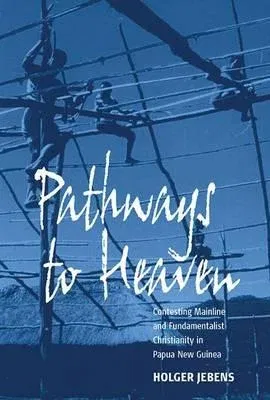Holger Jebens
(Author)Pathways to Heaven: Contesting Mainline and Fundamentalist Christianity in Papua New GuineaHardcover, 1 July 2005

Qty
1
Turbo
Ships in 2 - 3 days
In Stock
Free Delivery
Cash on Delivery
15 Days
Free Returns
Secure Checkout

Print Length
304 pages
Language
English
Publisher
Berghahn Books
Date Published
1 Jul 2005
ISBN-10
1845450051
ISBN-13
9781845450052
Description
Product Details
Author:
Book Format:
Hardcover
Country of Origin:
US
Date Published:
1 July 2005
Dimensions:
23.11 x
15.24 x
2.29 cm
Genre:
Christian
ISBN-10:
1845450051
ISBN-13:
9781845450052
Language:
English
Location:
New York, NY
Pages:
304
Publisher:
Weight:
517.09 gm